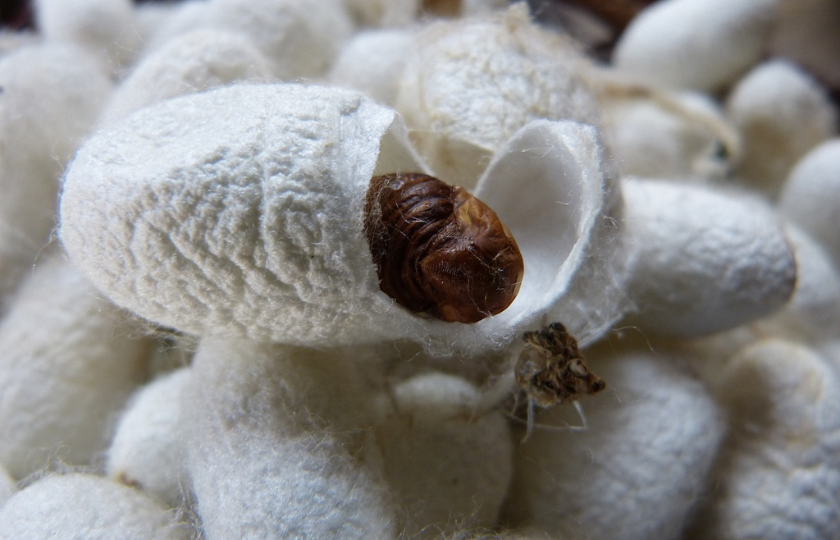Silk has been regarded as more environmentally friendly than its synthetic fabric counterparts because it is biodegradable and renewable. However, the silk industry has faced several challenges in recent years, including silkworm diseases and the availability of synthetic alternatives.
A Parisian-based textile company, Sericyne, aims to transform the silk industry, finding a way to improve silk production. Instead of waiting for the silkworms in traditional cocoons, its patented technology allows the worms to create various shapes.
It begins with the “meticulous” care of silkworms, raised for 30 days by local growers. In the factory, the worms are placed on mould supports where they spin silk into two or three-dimensional shapes where they are placed. Artisans then harvest the silk, which can be dyed, embroidered, hot stamped, or embossed, depending on preference.
Instead of the cruel process of boiling the silkworms to obtain the silk material, the special mould allows the worms to be able to fully develop into chrysalides, then moths, and so the cycle can begin again the following year.
The natural material produced is a shiny, non-woven fabric that is extremely strong.
Aside from traditional silk fabric, the company says the material can create a range of products, from candle holders to soft bedding.
The European Environment Agency estimates that synthetic fabrics, like polyester and nylon, make up approximately 60 per cent of clothing, and an estimated two-thirds of textile discarded in the EU is synthetic.
Supporting more natural, sustainable fabrics like silk can help stop the fashion industry’s dependence on synthetic, and with Sericyne’s technology, it is possible to modernise outdated production methods and adapt for the centuries ahead.
You may also be interested in reading:



